Tyrannies of Opinion et al

Interview by Richard Marshall
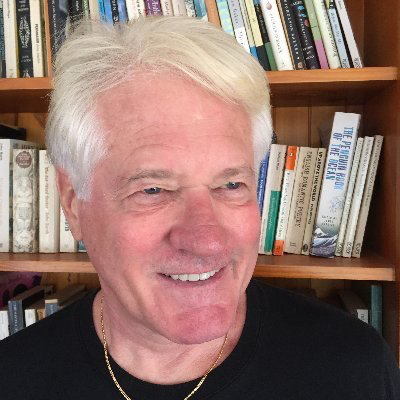
'Our job as philosophers is to seek the truth with intellectual honesty and all available rigor. It’s fine if some of us work in highly technical fields that have no direct social pay-off. For example, I’m glad that we’ve made progress in areas such as formal logic and (perhaps) Gricean semantics. But I don’t believe we’re justifying ourselves as a discipline unless we provide a place within the academy – one of the few such places – where it’s possible to step back and interrogate whatever might be our culture’s fashionable beliefs of the moment. Someone needs to ask difficult questions about fashionable belief systems, whether left-wing, right-wing, or otherwise. Are they true?'
'One survival advantage for secular liberalism, which is at the heart of the Enlightenment ideal, is that it’s very adaptable. It doesn’t require any particular metaphysical commitment or theory of the good. Stripped to its essentials, it can tolerate almost everyone and it can appeal to people from almost any background.'
'Most Western democracies already have restrictions on offensive speech that go far beyond sanctions against this sort of vile stuff – the US is the glaring exception – and I think that in practice, at least outside the US, we should probably be pushing back to try to narrow these laws rather than expanding them. The motivation for them is understandable, but they attract all sorts of abuses, over-extensions, misconceptions, and confusion.'
' Much of the flak that Rushdie copped while under police protection and hiding out for his life came from commentators on the political Left. Rushdie is still viewed with suspicion by components of the Left, and I had a sense of déjà vu when the murdered Charlie Hebdo cartoonists in 2015 also copped criticism from the Left, almost before their corpses cooled, with many commentators going uncomfortably close to saying they had it coming.'
Russell Blackford is a philosopher, literary critic, and legal scholar. He specialises in legal, political, and moral philosophy, with a special interest in bioethics. Here he discusses liberalism and the rise of revisionary liberalism, freedom of speech, whether social conformity is a bad thing, the tyranny of opinion and the outrage industry, the secular state, the Enlightenment, the moral imagination and science fiction, implications of machine intelligence and uploaded intelligence, science fiction and thought experiments, reflections on the pandemic, and the role of philosophy in a changing world.

3:16: What made you become a philosopher?
Russell Blackford: There’s a long story here, as I became a philosopher quite late in life. I’m also not sure that any of us have very much insight into our own motivations, at least when it comes to life-changing momentous decisions. But let me go back to when I was young and see what light it might shed. For a start, I come from a working-class family in an industrial city in Australia, i.e. Newcastle, New South Wales, where I returned a decade ago, partly to help look after my father in his final years. I grew up in the 1960s and 1970s in an environment that was anti-intellectual to put it mildly. It wasn’t all bad, but let’s say it had its downsides. It was an unlikely starting point for a philosopher. No one from my family had ever been to university, and the word “philosophy” was not one that I heard much when I was a child or a teenager.
Before going on, I should add that Newcastle has changed a lot since then, and it was always a city with a superb climate, glorious surf beaches, and a beautiful hinterland in the form of the Hunter Valley. There’s also a great deal about working-class communities and working-class people that’s undervalued and poorly understood by the political classes. Part of what distanced me from my environment was that I suffered sufficiently chronic and severe illness as a young child to spend a lot of time confined to bed, which encouraged my immersion in the world of books. I didn’t read anything as outré as works of philosophy, but I developed a love of language and writing, a curiosity about the natural world (and about history, society, and politics), and a certain literary facility. By my early years of high school, I was mainly reading popular science, history, science fiction novels – Isaac Asimov, Arthur C. Clarke, Robert A. Heinlein, a lot of books by Andre (really Alice) Norton, H.G. Wells, and on and on – and books about Greek and Norse mythology.
I loved Shakespeare from when I read Macbeth at 14 or 15, but I also loved American superhero comics, science fiction shows on television, and SF movies. Some of this might now be considered cool – sort of, maybe in a nerdy or geeky way – but by the standards of my time and place I was considered a weird kid. I didn’t initially study philosophy when I went to the local university in the 1970s, though I did start picking up stray philosophy units as and when I could – once I’d gained an understanding of what philosophy really was and found myself attracted to it. My academic focus at that point was on English literature and to a lesser extent on history. My original plan was to become an English and history teacher at high school level, but I soon modified this by aiming to become a literary academic.
Let’s fast-forward or I’ll be publishing my autobiography. I had a not-very-successful stint as a literary academic, having moved down to Melbourne to take up my first real, full-time job. Alas, the early 1980s were a lousy time to start an academic career in Australia. That’s a long story in itself. I did complete my first PhD; my dissertation examined the supposed return to myth in contemporary narrative fiction, as postulated by the great Canadian literary critic Northrop Frye. At any rate, I ended up joining the Australian Public Service where I actually did very well. I also studied law part-time – at the University of Melbourne, which has one of the top law schools in the world – and in the upshot, I spent nearly two decades with various public- and private-sector organizations, pursuing a career in government/law/public policy. For a time, I was a fairly prominent industrial advocate and labor relations lawyer.
But here’s the important thing, and I’m finally working my way back to your question. Whatever I’ve done in my life, whatever I’ve studied, however much I’ve loved literature, or been fascinated by the workings of the law, or by the workings of government, however much I was intrigued by religion and mythology, or whatever else came my way, there was always something that led me to philosophical questions. What is this phenomenon, this practice, really all about? Where does it come from? What’s its stucture, how does it fit together? What can we say about it in a general way, given appropriately deep and detailed knowledge of it? What value does it have for us, or what justification if it seems to need one? If it asserts authority over our lives – as the law does, as the government does, as religions do, as moral systems do – how legitimate are its claims? Suffice to say that I continued studying philosophy here and there when I could, eventually taking enough distance-education units to build up a solid grounding. From this and my legal background, I segued into completing a Masters degree in bioethics, and from there I segued into a philosophy PhD at Monash University– my second PhD – where my dissertation blended concepts from legal and political philosophy with questions from philosophical bioethics. An expanded and reworked version became my 2014 book Humanity Enhanced.
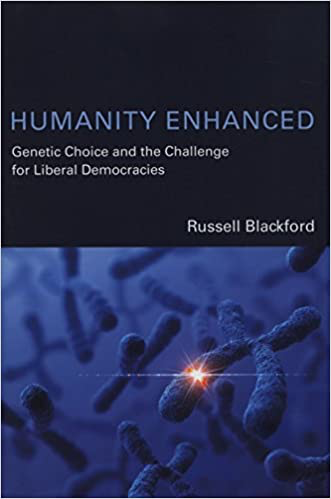
There was a crucial point in my life where I was gearing up mentally to take the next step I had planned for my legal career. This was in late 2003. And here’s where my opening remarks about momentous decisions come into play. The philosopher L.A. Paul has a turn of phrase where she’s talking about decisions that change our lives, and even change us and how we later evaluate what we did. Referring to Joseph Conrad’s Heart of Darkness, she imagines us asking, and I paraphrase from memory – Do I stay on the ship or plunge into the jungle of a new self? There’s no real way to know which is the right choice in those moments. What I know is that I had an opportunity at a good time in my life to study for that second PhD.
Back then, seventeen years ago, it felt right to plunge into the jungle of a new self as a philosopher. Here I am.
3:16: You’ve identified a problem which you call revisionary or identity liberalism. Can you say what this is and why it’s something that we should worry about?
RB: Liberalism is a complex historical phenomenon, and it’s often doubtful what the term “liberalism” even means in any given context. In particular, it tends to means something different in the United States from what the rest of the world means by it, and the idea of liberalism, rather than, say, progressivism, has a quite specific history in the US going back to the New Deal. For current purposes, I’m thinking of authors and statesmen who emphasized the liberty of the individual and especially the liberty of thought, inquiry, and public discussion. Here, John Stuart Mill is an exemplary figure, but not the only one.
Irrespective of issues to do with terminology, the political Left, at least in the Anglosphere, has increasingly adopted a new political ideology that is not liberal in this sense. It’s comprehensive enough, and attracts enough zealotry and fervor, to count almost as a quasi-religion. In this case, it’s based on highly solicitous attitudes – bordering on veneration – toward certain historically disadvantaged demographic groups. It includes a strongly authoritarian element. How could this have happened? That’s a contentious question, and I might write a book about it. I don’t investigate its origins in my current book, The Tyranny of Opinion, though I provide numerous examples of what I mean. Some people want to blame the ideas of the Frankfurt School – perhaps misapplied – or those of French poststructuralism and postmodernism – again perhaps misapplied. I tend to look to events in the late 1970s and the 1980s that left many people dissatisfied by what had been achieved by the social revolutions of the Long Sixties. There were reasons behind the change of emphasis, and some aspects were justified. It addressed frustrations that were largely genuine. Nonetheless, it involved a kind of politics that increasingly deprecated, rather than celebrated, ideas of free inquiry, open discussion, spontaneity, individuality, and the rest of the Millian value system.
One large straw in the wind was in 1989, with the fatwa by Ayatollah Ruhollah Khomeini against Salman Rushdie. This was appalling, of course, and it led to terrible outcomes such as the murder of Rushdie’s Japanese translator, Hitoshi Igarashi. But almost as shocking was the betrayal of Rushdie by many political figures and commentators who distanced themselves from him or blamed him for events, or even argued against publishing a paperback edition of The Satanic Verses. More surprisingly – then, if not now – much of the flak that Rushdie copped while under police protection and hiding out for his life came from commentators on the political Left. Rushdie is still viewed with suspicion by components of the Left, and I had a sense of déjà vu when the murdered Charlie Hebdo cartoonists in 2015 also copped criticism from the Left, almost before their corpses cooled, with many commentators going uncomfortably close to saying they had it coming. So we’re seeing a change from an essentially liberal tradition on the Left to a kind of post-liberal ideology that shows solicitude to (certain) communities and identity groups, and has an imperative not to challenge or offend them in any way.
There’s an imperative, for example, not to offend those Muslims who might be upset by a novel like The Satanic Verses .
3:16: You find Mill a good guide for an alternative liberalism rooted perhaps more in ideals of the enlightenment. Can you say why Mill is helpful in countering identity liberalism and the ‘tyranny of opinion’?
RB: Mill’s beautiful little book On Liberty is still a useful resource for our social and political debates. It helps us think about why it’s so important to permit, and to facilitate, what Mill calls “the liberty of thought and discussion,” and beyond that the genuine, practical freedom to live our lives as we wish. These ideas are important for opposing all the unnecessary restrictions that typically came, in past times, from the institutions and organizations of the Right. Today, they increasingly come from the ideology of the Left.
Importantly, Mill spells out that pressures to conform do not derive solely from the formal law. More pervasively, more insidiously, they derive from other sources, often the general social mores. Often they come from the opinions and attitudes of whoever we happen to do business with or otherwise associate with. It can be very difficult to resist these pressures, but unless we do, many ways of life might be stifled, many useful ideas might be suppressed – or at least not be given the hearing that they merit – and as individuals, we can find ourselves hiding or misrepresenting what we really think, compromising with our natural desire for honesty, and contributing to a distorted picture of what people in our society believe and want. Timur Kuran’s book Private Truths, Public Lies is well worth reading on this.
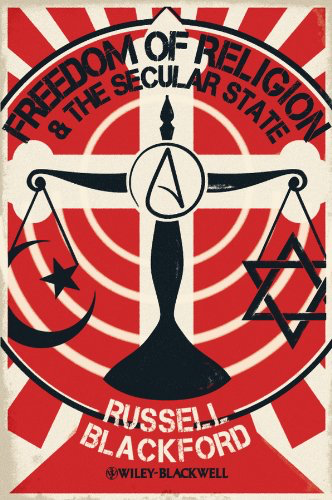
3:16: How is freedom of speech best conceived to protect us from mob opinions, and can limiting free speech be framed in a way that doesn’t justify tyranny at some point? Frederick Schauer seems to be influential on your thinking here.
RB: Schauer makes a worthwhile point that the state is a poor arbiter of what speech should be suppressed and what speech might be valuable. State authorities have a long record of making decisions that most of us would now see as terribly mistaken – whether it’s the punishment of supposed heretics, censorship of great works of art, or suppression of speech that criticizes the authorities’ own exercise of power. Mill might agree with this as far as it goes, but again, it’s not his emphasis in On Liberty. He is more worried about the availability of ideas for consideration and about our ability to live spontaneous, creative, honest lives. Because of this emphasis, he does not distinguish sharply between state coercion and non-governmental pressures to conform.
Viewed from this Millian perspective, many issues become clearer. One is that a responsibility goes with our freedom: a responsibility not to become enforcers of conformity ourselves. As Mill explains, there’s a morality of public discussion. Those pages of On Liberty deserve more attention.
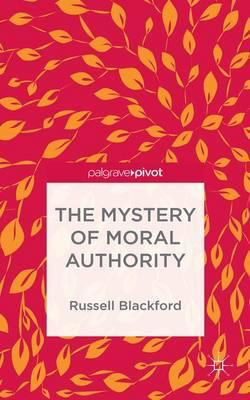
3:16: What drives the desire to socially conform and why is it a bad thing? Isn’t social conformity a better way of regulating behaviors than the heavy hand of the law? And if a racist is forced to publically misstate her real views in public for fear of being a social outcast, for example, isn’t that a good thing – even in terms of enlightenment thinking, whereby private thoughts that do no harm should not be policed?
SB: We’re inherently conforming animals, and exclusion from our groups for non-conformity is terribly painful to us. Most people avoid it at all costs, but that can mean loss to us as individuals and also to the group, which does not benefit from our ideas. Now, there’s an issue as to whether some ideas are so vile or hateful or socially dangerous that we really should want them not to be heard, even keeping in mind the long, repugnant history of censorship and heresy-hunting. By way of comparison, Locke thought, along with many others from earlier centuries of European modernity, that it was necessary to suppress atheism and disbelief in an afterlife. He put arguments as to why those particular ideas were so socially destructive that they should be suppressed even by state officials who did not aspire to arbitrate religious truth. As it turns out, those ideas were not good examples. But think of the claims in Rwanda – the opinion if you will – that the Tutsis were snakes and cockroaches: this helped whip up support for the genocide that took place in 1994, when hundreds of thousands of innocent people were slaughtered. The Nazi propaganda most associated with Julius Streicher and Der Stürmer gives us another such example.
Such expressions of hate, accompanied by seriously dehumanizing language and imagery, and perhaps using deeply derogatory epithets, do seem, in a sense, beyond the pale. I’m very conscious of such issues, and I’m not opposed to all laws aimed at hate speech, if Nazi-like campaigns of dehumanizing, hate-filled propaganda are their target. On the other hand, most Western democracies already have restrictions on offensive speech that go far beyond sanctions against this sort of vile stuff – the US is the glaring exception – and I think that in practice, at least outside the US, we should probably be pushing back to try to narrow these laws rather than expanding them. The motivation for them is understandable, but they attract all sorts of abuses, over-extensions, misconceptions, and confusion. In any event, nobody is susggesting that this stuff ought to pass without comment when and if we’re exposed to it. On the other hand, most people know the risks of using this language – I do mean using it, not quoting it or mentioning it or analyzing it – and what it says about you if you speak like that. Fine. But there are enormous opportunities for scope creep with concepts such as hate speech, racism, misogyny, Islamophobia, and others of the same kind. A vast array of speech that, I suggest, falls well within the bounds of democratic legitimacy is now routinely demonized and seized upon as an excuse to demonize people.
This speech is often described as harmful or hurtful, or even as an act of violence. Why? Sometimes it might involve opinions that certain people find challenging. Some of these opinions might even cause offense. But if those were reasons to suppress speech, a vast range of past and present speech could be legitimately suppressed by one means or another. The row over an article by Rebecca Tuvel in 2017 is a close-to-home example. Tuvel’s starting point was to support gender transitioning on esssentially liberal grounds. But these were the “wrong” grounds, according to her detractors. From here, she drew an analogy that led her to recognize, in addition, a kind racial transitioning. As she discovered, that’s considered in some circles to be not just an incorrect idea but a forbidden one. So Tuvel found herself denigrated and demonized in an open letter signed by 800 people, many of whom were fellow academic philosophers. I could go on multiplying examples, including others that are also close to home. Suffice to say that the new ideology enables – it actually requires – an enormous range of potentially valuable speech to come under unfair attack, with punishments meted out to decent, thoughtful people.
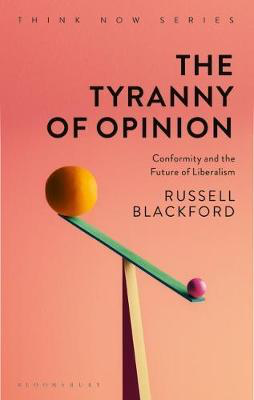
3:16: You discuss what you call the Outrage Industry, something that cuts across both left and right politically. What is this and why is it a problem?
RB: I’ve borrowed this term from the political scientist Jeffrey M. Berry and the sociologist Sara Sobieraj, who are primarily writing about right-wing outrage personalities such as Rush Limbaugh. We can find similar figures on the political Left, but for three decades or more the rhetoric of anger and outrage has been especially well-developed by right-wing shock-jocks who engage in confected emotion and targeted vilification. Whichever side of politics this comes from, it discourages tolerance of opposed views, distorts public debate, and makes participation so potentially unpleasant as to put up a barrier.
3:16: Brian Leiter has talked about ‘cyber-cesspools’ – how do you diagnose the role of the internet in this debate, and what can be done?
RB: Too many areas of the internet, including many popular blogs, much of what we see on Twitter, and so on, is now devoted to tearing people down, invading and exposing their privacy, lying about them, campaigning to destroy their careers, and generally humiliating, harassing, and abusing them. Notoriously, much of the nastiness comes from alienated young men who have extreme right-wing ideas, or at least toy with those ideas for shock value. It’s a mix of the alt-right and the alt-lite, if you will. But plenty of nastiness comes from essentially well-meaning people on the Left who evidently think this is how public discussion is now supposed to work.
I’m not a Luddite about the internet. In many ways it’s been profoundly beneficial, especially during the current pandemic. But it does seem to worsen this particular problem. Through social media, it’s become easy to create mobs that target individuals who’ve done little or nothing wrong. As for what we can do about it, the first thing is to be aware and the second is to resolve not to take part. We can publicly object to it. We can try to help its victims whenever we can. At the moment, though, I almost despair of getting widespread change in this aspect of online culture. Are there, or could there be, legal remedies? Perhaps, but the law is a blunt instrument. I discuss legal issues in The Tyranny of Opinion, but on this occasion let me emphasize one crucial, widely misunderstood point. There is no contradiction between supporting free inquiry and discussion, with (almost) no ideas off the table for consideration, while also supporting the existence of laws against defamation, invasions of personal privacy, and perhaps some other kinds of abuse. Such abuse might fall within some people’s conceptions of free speech, but it is absolutely not what the Millian liberty of thought and discussion is about. This behavior can even deter candid discussion of ideas. Why put your head above the parapet and risk being demeaned and abused in this way?
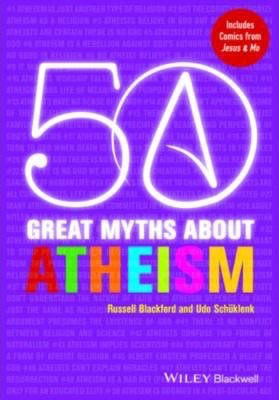
3:16: Your discussion takes place largely within the frame of a secular state. What counts as a secular state in our modern context?
RB: When I talk about a secular state I mean a political entity whose officials largely accept that the civil magistrate, to use Locke’s terminology, is not an appropriate or competent arbiter of religion. Thus, considerations as to what pleases God, or conduces to spiritual salvation, or the like, should not enter into deliberations about public policy. I doubt that we’d find many democracies that are completely secular in this sense, but most of the liberal democracies of the West at least approximate it. We could find plenty of examples where, say, the US falls short. On the other hand, our modern liberal democracies don’t drown Anabaptists, burn modern equivalents of Jan Hus, Michael Servetus, or Giordano Bruno at the stake, or even throw the works of Richard Dawkins on a fire. Dawkins is more likely to find himself vilified by left-wing commentators who write for The Guardian and view his criticism of religion as rocking the social boat.
3:16: Is the Enlightenment ideal the bedrock for this idea and what happens if the Enlightenment ideal is rejected for alternative ideals, such as religion or post-modernity or neo capitalism or Chinese Marxism or nationalism?
RB: One survival advantage for secular liberalism, which is at the heart of the Enlightenment ideal, is that it’s very adaptable. It doesn’t require any particular metaphysical commitment or theory of the good. Stripped to its essentials, it can tolerate almost everyone and it can appeal to people from almost any background. You don’t need much more than an idea that the state is an incompetent arbiter of religion, plus a general commitment to free inquiry and leaving people alone in their personal lives as long as they’re not harming others in some straightforward way. That’s compatible with a wide range of worldviews, religious or otherwise, though not with worldviews that inherently build in intolerance or authoritarianism.
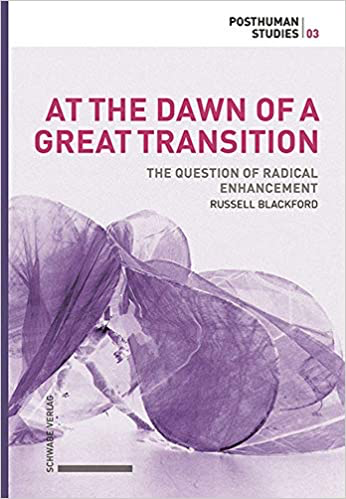
But you’re right – there are other ideologies out there, and some might prevail in large parts of the world, even if not in the West. I’m especially interested in the current rise of China to superpower status, and I’ve been learning all I can about Chinese history and culture, about Chinese religion, ideology, and military doctrine. Whatever happens next, the destiny of the world is tied up with that of China. There’s much I could say about the current Chinese regime and its goals and ideology, but I’ll skip over that. If China in its current form holds together through the twenty-first century, and if the regime survives and continues to adapt and develop, the West will face its most formidable rival since the medieval Islamic empires, and certainly more formidable than the Soviet Union turned out to be. Not that Russia is going away, and not forgetting that there are now other potential great powers at an intercontinental rather than European level. All of this will play out against the backdrop of global warming, and it might be a rough ride. And I haven’t even mentioned the development of (almost) entirely new views of the world, such as various transhumanisms and posthumanisms.
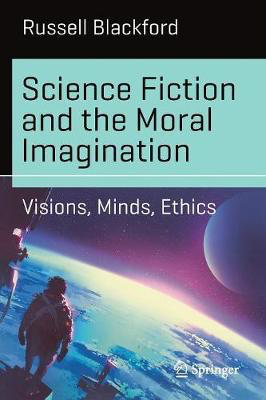
3:16: You’ve written about the intersection between the moral imagination and fiction, in particular science fiction. Given that technology was supposed to be liberating but seems very capable of being a Frankenstein monster can you say something about this and whether there’s a role for science fiction even in this debate about the ethics and politics of free speech?
RB: As I’ve mentioned, I grew up reading science fiction, and my first PhD was in Eng. lit., so it’s no wonder that I keep returning in my work to science fiction and its themes. I’ve even had some (very) small success in writing science fiction and fantasy professionally. But it’s like everything else that I love or am fascinated by: I find myself also fascinated by philosophical questions about it, including questions about the technophilic and technophobic imaginations. Not every theme or issue lends itself to science fictional treatment, and I can’t immediately see how SF (I always say “SF” not “sci-fi”) could illuminate our current questions about free speech and open discussion except in the most obscure and allegorical form. A maverick genius like Michel Houellebecq could probably find a way, but I don’t know how he’d go about it.
3:16: You’ve also discussed the threat of machine intelligence and I guess the simple question is this: should we be scared? And if we should, what could be done?
RB: I’m not really scared by the prospect of a malevolent, artificially conscious being like Skynet – that seems a long way away, even if it’s possible. I’m not scared about a powerful, but literal-minded, computer intelligence trying to turn us all into paperclips after being told to maximize paperclip production. These scenarios are sensational and – in a strange way – fun to think about, but the real-world issues with machine intelligence in the coming decades will probably be less dramatic. For example, what does it mean, and how should we respond, if limited but highly effective algorithms soon do a better job than human beings across a wide range of domains, including much work in prestigious professions such as medicine and law? The implications are far-reaching, and we need to pay more attention right now to the goals and principles that we need, or want, to rely on as we try to adjust. The specifically military applications of machine intelligence are staggering by themselves, even if we don’t invent something like Skynet. The military is undergoing rapid transformations, both internally and in its historical role and its relationship with the rest of society. As it becomes more and more technologically advanced, this process can only accelerate. Much of the focus of concern, quite properly, has been on the prospect of lethal autonomous weapons on the loose, but there will be much more to think about.
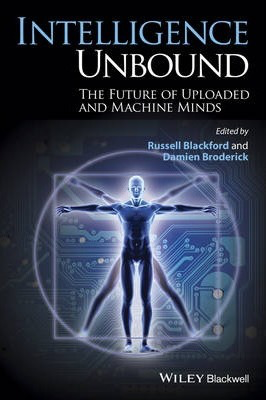
3:16: Linked to this is the question of uploaded intelligence. To me it strikes me as elaborate suicide but maybe that’s because, as Parfit would tell me, I am sentimental about bodily continuity. What are your intuitions about whether this is a possibility or not and how would you secure them? Is Parfit right?
RB: I co-edited a book on machine intelligence with my friend Damien Broderick – Intelligence Unbound – and part of the fun was that I didn’t have strong feelings or intuitions one way or the other about topics like this. At the end of the day, though, Parfit would say the same about me, that I’m sentimental about bodily continuity.
3:16: This is another area where science fiction might help us think through some of the issues. However, someone like Roy Sorensen might say that science fiction is too unwieldly to work as thought experiments – there’s too much noise and not enough signal so to speak – do you think this a general problem with using sci-fi in philosophy, - or isn’t it a problem from where you’re sitting?
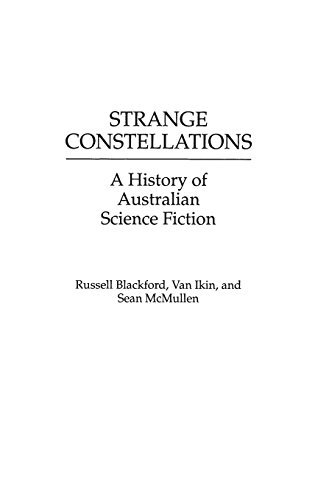
RB: I don’t think it’s the job of science fiction writers to formulate nice, clean thought experiments, though some have produced narratives where the philosophical issues are at least clear enough to be pedagogically useful. If you’re teaching undergrads about uploading and issues of personal identity and survival, you might get them to read William Gibson’s short story “The Winter Market.” If you want to teach them about David Lewis’s view of time, free will, and personal identity, try Robert A. Heinlein’s story “By His Bootstraps.” I can’t take credit for those suggestions – they come from Aubrey Townsend, who used them for one of the subjects he designed at Monash University.
My interest when I write about science fiction is not so much pedagogical, though people teaching ethics courses might find my book Science Fiction and the Moral Imagination useful. I’m interested in science fiction for its own sake, which inevitably means that I approach it not only with pleasure derived from particular novels, stories, films, and so on, but also with philosophical questions about it as a cultural, sociological, and historical phenomenon. How should we understand what science fiction is, what role it plays, what the social conditions are for its existence, what themes it lends itself to, what its iconography means, and what it says to us by the nature of its themes and icons and standard plots, irrespective of the intentions of its creators? How do those creators – who are often very aware of such questions– respond to, complexify, or even subvert and remake, what they’ve inherited from SF’s traditions?
3:16: The pandemic has raised interesting issues for politics and culture as well as the future of humankind. How have the ideas you defend – secular state vs non-secular, enlightenment liberalism vs alternatives, sci fi literature vs non sci fi – fared in the present context?
RB: I’m not keen to draw too many conclusions at this stage of the pandemic, to be honest. It’s still early days. But I have a few observations, perhaps tangential to what you’ve asked me. One is simply to exclaim at how badly prepared the nations of the world were for this, even though we’ve known for many years that something like it would happen sooner or later – probably sooner – and that it could easily have been worse if SARS-CoV-2 had been a more deadly virus as well as very infectious. Perhaps politicians and senior bureaucrats should be thinking harder about threats to our common human future. Reading some near-future science fiction would do them no harm in that respect, because this class of imminent threat was not taken seriously enough and adequately planned for.
We’re now seeing much innovation in how work is done, and I expect that some of it will stick and some will even be an improvement. In that respect, the COVID-19 pandemic is like a war. It’s generating innovative solutions, and we’re fortunate that we at least have the internet to enable many kinds of safe interaction. As for debates over ideologies and our freedoms, the magnitude of the problem has not stopped us arguing. In fact, the pandemic has given us one more topic to have polarized, ideologically distorted arguments about.
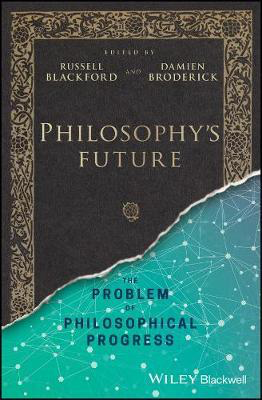
3:16: And what about philosophy’s role? Does philosophy make progress and has it anything to say about the current array of existential, political and cultural threats we face? Why should we still heed the philosophers?
RB: I wish I could go into the whole issue of whether philosophy makes progress, given its seeming lack of convergence on answers to its biggest traditional questions. But that’s a huge metaphilosophical issue, and this is already getting very long. As you know, it’s the topic of the other book that Damien Broderick and I edited together, Philosophy’s Future: The Problem of Philosophical Progress. You ask why we should still heed the philosophers, and I wonder, in turn, should non-philosophers heed us? Maybe, but their respect has to be earned. From my viewpoint, there have been some disillusioning moments, not least the orchestrated attack on Tuvel that I discussed earlier.
Let me lay some of this out. First, our job as philosophers is to seek the truth with intellectual honesty and all available rigor. It’s fine if some of us work in highly technical fields that have no direct social pay-off. For example, I’m glad that we’ve made progress in areas such as formal logic and (perhaps) Gricean semantics. But I don’t believe we’re justifying ourselves as a discipline unless we provide a place within the academy – one of the few such places – where it’s possible to step back and interrogate whatever might be our culture’s fashionable beliefs of the moment. Someone needs to ask difficult questions about fashionable belief systems, whether left-wing, right-wing, or otherwise. Are they true? Can they be supported by evidence? Have they been contrived for ulterior purposes? What nuances and complexities might they miss? What intellectual difficulties do they face? What excesses might they lead to? What happens if their proponents have everything their own way, without any checks and balances? I don’t want to over-romanticize our job. Again, not all individual philosophers need to have the same focus. But if we don’t, as a discipline, provide that layer of rational scrutiny, no one else will. It’s part of what philosophy is ultimately for. It’s part of our unwritten compact with society and each other, and if we can’t or won’t act on it, I don’t see why the larger society should take us seriously.
3:16: And finally, are there five books other than your own,, that you could recommend to the readers here at 3:16 that will take us further into your philosophical world?
RB: If we’re talking about philosophical books, I keep going back to the classics – especially Locke, Hume, and Mill – and I discover more in them every time. But let’s think of five recent books that I’ve found very useful for one purpose or another. Their titles tell the story in each case.
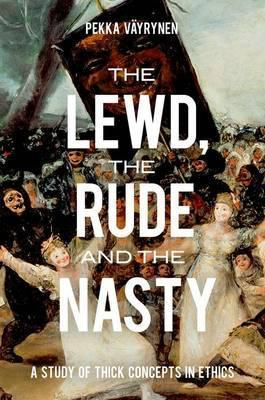
Pekka Väyrynen, The Lewd, the Rude, and the Nasty: A Study of Thick Concepts in Ethics (2013).
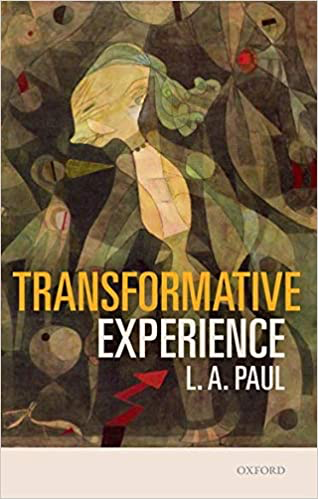
L.A. Paul, Transformative Experience (2014).
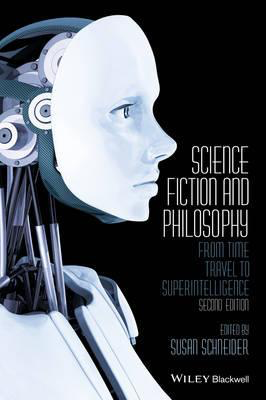
Susan Schneider, ed., Science Fiction and Philosophy: From Time Travel to Superintelligence , second edition (2016).
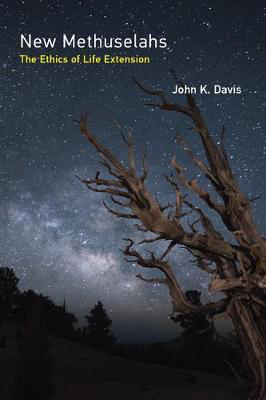
John K. Davis, New Methuselahs: The Ethics of Life Extension (2018).
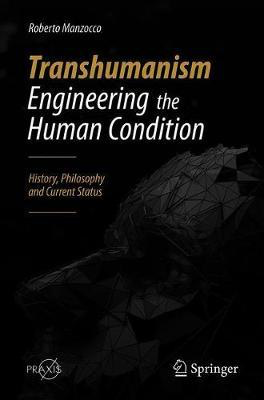
Roberto Manzocco, Transhumanism – Engineering the Human Condition: History, Philosophy and Current Status (2019).

ABOUT THE INTERVIEWER
Richard Marshall is biding his time.
Buy his second book here or his first book here to keep him biding!
End Times Series: the index of interviewees
End Time series: the themes
Huw Price's Flickering Shadows series.
NEW: Steven DeLay's Finding meaning series